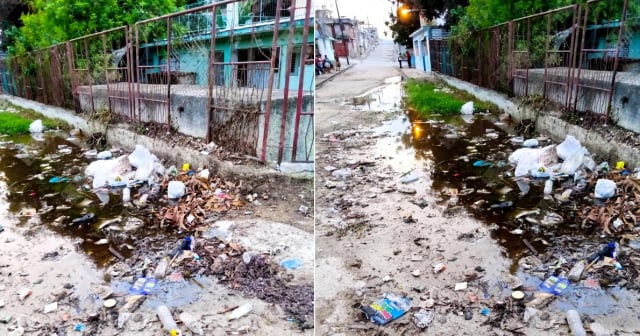A user on social media shared a video last Saturday showing second-grade children dancing to the famous song "Marca Mandarina" in a school in Havana, which sparked controversy on social media.
"End-of-year ceremony for the second-grade students at José María Pérez school in La Lisa," was the short message shared by the profile Juan Juan AL MEDIO on Facebook.
The video has amassed over 6,000 reactions, 3,400 comments, and more than 430,000 views in just a few days.
Many users agreed that children should not dance in such an obscene manner, especially in an educational institution. Additionally, they pointed out that parents and family have a great responsibility in exposing children to genres and themes that are inappropriate for their age.
"The lack of values and respect for a child's innocence has crossed the boundaries of disgust in Cuba," said a person named Lucy Sosa La Mulata del Caribe.
"I see young girls and boys humming obscene songs and dancing inappropriately. When those second graders are in sixth grade and are pregnant at 11, as I have seen, then they will start to worry or ask themselves what they did wrong. This society is taking away childhood from children and normalizing what is wrong," stated Nelkis García Rodríguez.
For her part, Magaly Velasco Jordán said: “What are they going to ask of the kids if the teacher is bending over? For us teachers from 40 and 50 years ago, we would lose our jobs if we did that,” the woman pointed out, highlighting the poor quality of education in Cuba today.
"Look how nice, and the teacher showing those kids the gossip, we are lost," pointed out Teresita Hernández.
Other people pointed out that a small child's way of dancing does not necessarily relate to their future human quality.
In that regard, Reinier Hernández González said: “I have been watching videos like these for years and I think it has nothing to do with the future of children. I have a neighbor who danced like that or even worse when she was in elementary school, and now she is a lawyer with honors and the director of a municipal law firm.”
Darel Rochi Robinson expressed: “I danced my heart out when I was that age, what a tremendous grind I did, today I am an adult and I’m not traumatized.”
This is not the first time that videos of this nature show behaviors that some consider reprehensible in schools and other public institutions in Cuba.
A twerking competition with minors was held at the Ciego de Ávila zoo, during an event for the anniversary of the facility, and it also sparked controversy.
The center's disc-jockey, named Eddy Martínes, shared a post on his Facebook wall featuring three teenagers dancing in front of three other young people who remain seated.
Another video shared by internet user Isabel Molina, also from Ciego de Ávila, shows other primary school children (most of them girls) dancing reggaeton at an activity in their own school, where an adult can be heard speaking through a microphone, encouraging them to move and calling on their teachers to join in.
What the videos of Martines and Molina show has already become a part of the everyday life of Cubans. Birthdays, children's parties, and recreational activities in schools or other centers are always enlivened with reggaeton themes.
A few years ago, a video of some Cuban pioneers "dancing perreo" sparked controversy on social media.
What do you think?
SEE COMMENTS (1)Filed under:
